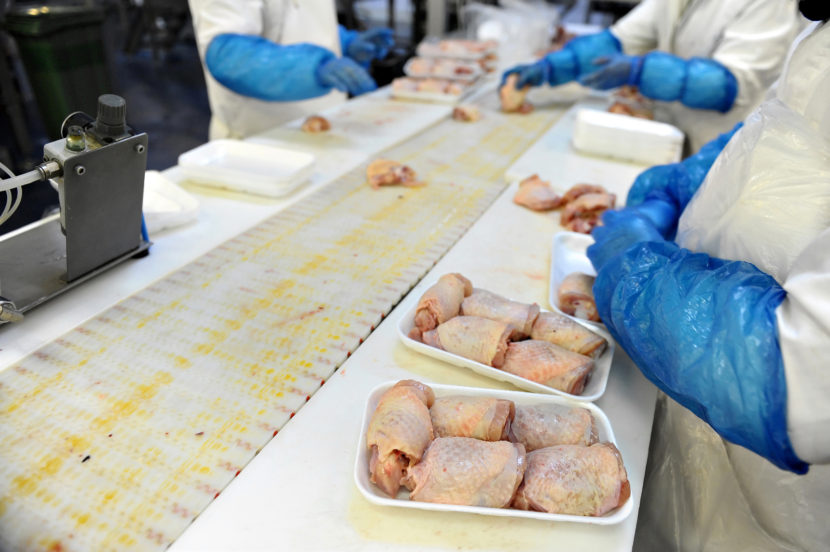Report Card for Implementing FSMA in the States
By Dr. Darin S. Detwiler, D.LP.
The FDA’s initial implementation phase of FSMA includes a strong dependency on state and county agencies to help build an Integrated Food Safety System. While the investigation and reporting of foodborne illnesses by state and county health departments are critical in the prevention of foodborne disease in the U.S., one of many concerns is that not all states and counties are ready, or have the capacity to carry out the level of food safety regulatory enforcement and inspection specified by the Act.
Key officials at the FDA describe capacity as a complex characteristic that relates to an agency’s ability to perform its duties and be able to pivot and respond to crises as they arise. The FDA has voiced concern about whether individual states have enough resources, technical staff, lab capacity, and institutional infrastructure to do the work related to the implementation of FSMA. One of the concerns is that resources and staff will have to be diverted from their intended uses, resulting in, for example, decreased restaurant or retail inspections.
Another concern is that it will be tough to develop a truly integrated system because states often vary in the amount of time between a trigger event, the detection of an outbreak, the identification of the source, and the official end of the outbreak. A true integrated system is only as strong as its weakest member and, unfortunately, the states’ capacity, in this concern, is nearly impossible to measure.
Unfortunately, the states’ capacity, in this concern, is nearly impossible to measure.
In its 2015 report, “All Over the Map: A 10-year review of state outbreak reporting,” the Center for Science in the Public Interest (CSPI) ranked each state on their reporting of outbreaks between 2003-2012 and found that 66% earned a “D” or “F” rating. CSPI’s 2015 report also identified the number of outbreaks reported to the CDC and solved within each state. Their alarming finding was that only seven states solved 50% or more of their reported, non-multi-state outbreaks on their own.
The states that are considered to be leaders in food safety are those that have strong surveillance programs, can quickly get on top of food illnesses when they occur, and can usually find the source of an outbreak quickly. The FDA has identified the states of Washington, California, Florida, Minnesota, North Carolina, and Georgia as having the strongest food safety programs in the country.
A state with ideal capacity has adequate and appropriate equipment and resources, as well as funding to hire the appropriate technical staff. However, there have been nearly 2,000 layoffs in labs and agencies across the country since 2008, which affects the number of restaurant inspectors, laboratory capacity, and surveillance systems available.
With the passing of FSMA, the FDA has expressed concerns over the inconsistencies among the states’ regulations. The legislation appears to be Congress’s way of acknowledging that there is a need for strengthening regulations across state infrastructure including tribal and territorial governments. However, concern within the FDA still exists over conflicts of interest with various different departments, where one department—like agriculture—is focused on regulatory insight while another—such as the health department—puts priority focus on public safety.
In my work consulting with food companies, a recent concern over these new regulations is the lack of guidance from state agencies. Companies with facilities in multiple states express a great deal of uncertainty as to how this will affect them, and when. Even companies with excellent track records for food safety are concerned, as they fear that they will be used as “test cases” for new inspectors and new inspection protocols.
This all leaves consumers highly dependent on their state’s capacity. The solution is for each state to focus on building their agency capacity to handle the new responsibilities of inspection and enforcement related to FSMA. And this needs to be done quickly. In the meantime, the food industry is left to pick up the pace of FSMA implementation and, especially for firms with facilities in multiple states, the new political food landscape will include many challenges.
About the Author
Dr. Darin Detwiler, Founder and President of Detwiler Consulting Group, LLC, is the Director of Regulatory Affairs of Food and Food Industry and Professor of Food Policy at Northeastern University in Boston, MA. In addition to serving as the Chief Regulatory Officer of the International Food Authenticity Assurance Organization, Dr. Detwiler serves on numerous committees and advisory panels related to food science, nutrition, fraud, and policy. He is a sought-after speaker on key issues in food policy at corporate and regulatory training events, as well as national and international events. Dr. Detwiler holds a Doctorate in Law and Policy.

-
 FeaturedRisk management
The Cost of a Breach: What a Cyberattack Could Mean for Food Safety Recalls
FeaturedRisk management
The Cost of a Breach: What a Cyberattack Could Mean for Food Safety Recalls
-
 FeaturedRisk management
Securing the Food Chain: How ISO/IEC 27001 Strengthens Cybersecurity
FeaturedRisk management
Securing the Food Chain: How ISO/IEC 27001 Strengthens Cybersecurity
-
 FeaturedRisk management
Revolutionizing Food Safety Training: Breaking Out of the “Check-the-Box” Mentality
FeaturedRisk management
Revolutionizing Food Safety Training: Breaking Out of the “Check-the-Box” Mentality
-
 GFSI Standards
GFSI 2025: Building Trust, Tech-Forward Solutions, and Global Unity in Food Safety
GFSI Standards
GFSI 2025: Building Trust, Tech-Forward Solutions, and Global Unity in Food Safety
-
 FeaturedFood Safety
Integrated Pest Management: Strategies to Protect Your Brand’s Reputation
FeaturedFood Safety
Integrated Pest Management: Strategies to Protect Your Brand’s Reputation
-
 FeaturedFood Safety Culture & Training
No Open Door Policy: Challenges That Impact Pest Control in Food Processing Plants
FeaturedFood Safety Culture & Training
No Open Door Policy: Challenges That Impact Pest Control in Food Processing Plants




